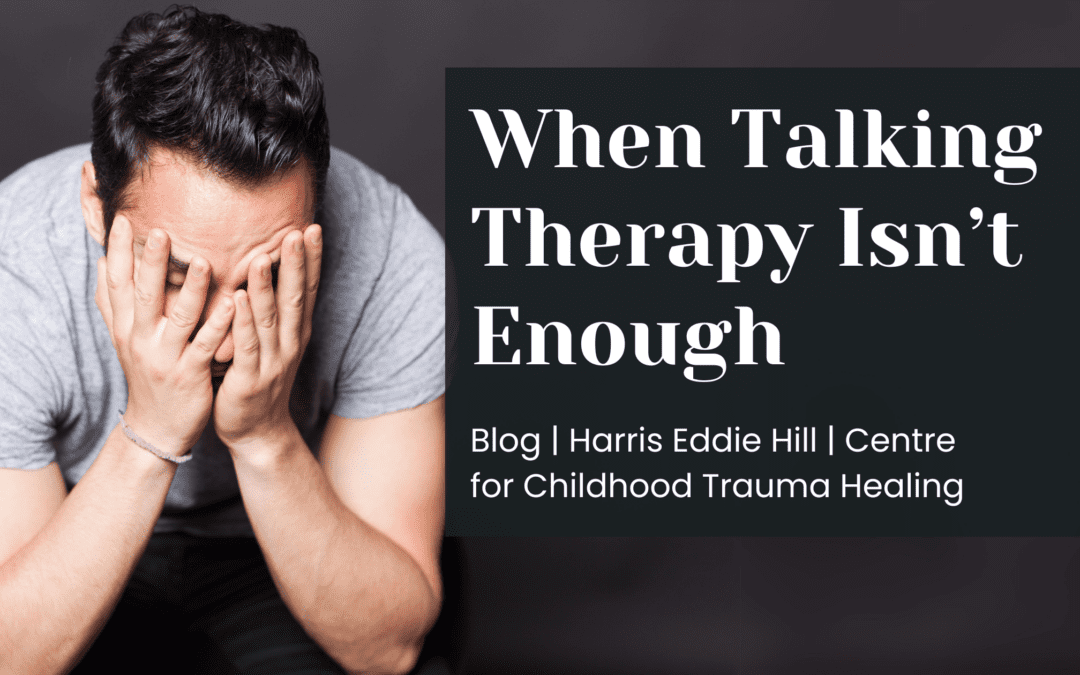Sure, the first time you share your traumas aloud with another person to witness you, is pretty significant. Some of the shame dies then, as you realise that what’s happened to you doesn’t make you disgusting or unlovable. That person witnessing you, if they’re good, feels compassion for you, but is still looking at you like you’re a human being. It’s good.
But years down the line, when you’re still triggered, scared, exhausted, and sometimes reacting in a way that feels extreme, and maybe you’re embarrassed about it sometimes, will talking about it help? You try again. The new person witnessing you is good, but you’re finding yourself saying similar things as last time, and that hit of relief you got the first time isn’t there anymore, or it’s not as strong. You start to wonder if you’re doing it wrong.
After a while of being brave and getting practiced at sharing how you’re feeling, you get confused about why the triggers are still there. You have a good attitude, you’re well-adjusted, you might even understand a little bit of the science of why your body and brain is doing what it’s doing. But too many triggers is tiring, and you often have some low days after being triggered. It spins you out for days each time and disrupts your life.
‘Do you need to talk it through with someone?’ a well-meaning person asks you.
‘I’ve talked and talked and talked about it!’ you explode in frustration, in your mind.
‘Yeah, maybe,’ is what you say listlessly, out loud.
Here’s the truth, though; talking about things, thinking about them in a different way, having a loving attitude to yourself – it doesn’t get rid of trauma. If you’ve snapped your leg in half, are you going to try to be as positive about it and self-reflect as much as you can? Or are you going to get a cast and some pain relief?
How did the traumas happen to you? Was it your attitude that allowed the trauma to take root? Was it your immaturity? Your age? Or was it an emotional injury? Was it something that happened to you that shouldn’t have happened? Was it something that no one could be prepared to handle perfectly? Maybe where you are right now was the best outcome you could have reached with the tools you’ve had.
The tool that you need, that’s so rarely promoted, understood, or utilised? Is fixing your emotional traumas using what? Emotions. Just like you use a structural thing to heal the structure of a broken leg, we use emotional experiences to heal your emotional experiences. It’s not rocket science, it’s not a scam, and it’s not woo-woo (although I’m a fan of that, too). It sounds simple, but it’s effective, and it doesn’t take that long (it might cost you some extra boxes of tissues, but I know when I was in the same boat as you, I’d have bought a whole crate if I knew I could treat my c/PTSD!).
In time, I hope that this approach will become more and more utilised by the talking therapy industry, but as some of my more cynical friends have said ‘where’s the money in curing someone, though?’, and I find it difficult to argue against that point.
Sometimes talking therapy is not enough. It doesn’t mean you’re doing it wrong or that it’s just going to take longer; it’s that the approach is not appropriate for certain emotional injuries. What we need are appropriate, tailor-made emotional remedies. None of us deserve to suffer forever. You deserve to heal. I did it, my clients have done it, and I think you can do it, too.
Come and have a chat with me and let’s see what we can do for you.
Is it finally time for you to say goodbye to your relational trauma?
Have a conversation with me (via zoom) and let's explore your options. I'll have something to suit you, wherever you are right now.
Book a free 30-minute assessment with me on the button below.

